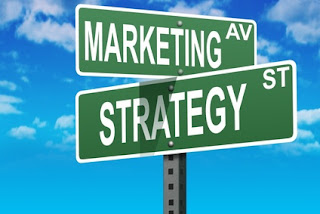 There could be no better time to start planning for catering sales success than right now. Budget planning is done for the new year, and now we just need the action items and programs to make it happen. By creating a comprehensive marketing plan, you are ensuring that everything you want to accomplish and all the target markets you need to address are covered. Marketing plans can be as simple as you want to make them, but it is important to include some key aspects. Here is a guideline of what every good marketing plan should include:
There could be no better time to start planning for catering sales success than right now. Budget planning is done for the new year, and now we just need the action items and programs to make it happen. By creating a comprehensive marketing plan, you are ensuring that everything you want to accomplish and all the target markets you need to address are covered. Marketing plans can be as simple as you want to make them, but it is important to include some key aspects. Here is a guideline of what every good marketing plan should include:Quantifiable Goals
Your goals outline exactly what you want to do and should be quantifiable (have a dollar amount of percentage increase represented). For example: "Increase wedding business by 10 weddings in 2013"; or "Increase weddings by 15% in 2013". There should be a goal for every market segment you wish to impact such as corporate events, charitable events, golf tournaments, schools, etc. You can also break down the corporate market into specific segments such as medical (hospitals, pharmaceuticals); or real estate and mortgage companies, etc., if a particular segment has a strong presence in your marketplace.
Action Items with Descriptions
This describes exactly what you will do to accomplish your stated goals. How will you increase your wedding business? Will you build new relationships with wedding planners? Start to target an ethnic or cultural wedding group that you have not focused on in the past? (This is an awesome way to add a new revenue stream to your wedding market, by the way!) List all the activities and action items you have to do in order to reach your goal.
Anticipated Revenue
We have to know if a certain program or action item is time-worthy and will contribute appropriately to achieving our goals, so estimate what you think you will generate in revenue from each activity or action item. When you total up all of the revenue associated with the programs and action items, you should be over your financial goal. If you are not, you need more programming or better execution!
Assignment of Responsibilities
Do not assume that someone else will be doing a certain action item. Assign responsibility to every single item so there are clearly defined "to-do" lists.
Timeline
Your marketing plan should be easy to use and execute, so by applying a timeline as to when each program and action item should be happening creates a very easy system for you to follow as you work through the year.
Expected Expenses
We should always be aware of any related expenses that are associated with the action items or programs. Spending your dollars wisely is key to getting the appropriate return!
Really challenge yourself and your team this year to create an exciting "new" marketing plan. The temptation is always there to "copy and paste" from years past, but now is the time for creativity and a clever marketing approach. Not only does it yield better results, but it keeps your team engaged and motivated. Every year, try to incorporate one brand new market segment into your marketing plan - who have you NOT focused on in the past?
And, just a reminder, before launching into the New Year, refresh your Competitive Analysis and take the time to complete an SFSWOT (Successes, Failures, Strengths, Weaknesses, Opportunities and Threats) analysis - they both provide you with great information to fine tune your marketing plan and make it even more effective. Our online hospitality training program offers a full marketing template, SFSWOT and Competitive Analysis - all tools to help you realize success in 2013.
Article by Lynne Lafond DeLuca, Sr. Vice President











